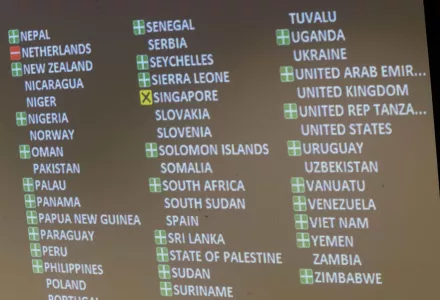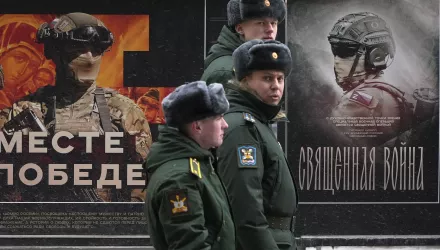The Development of the Treaty on the Prohibition of Nuclear Weapons and the P5 Response
A Project on Managing the Atom (MTA) seminar with Rebecca Davis Gibbons, postdoctoral research fellow with MTA and the International Security Program.
This seminar will be held online via Zoom: https://harvard.zoom.us/j/423799092


